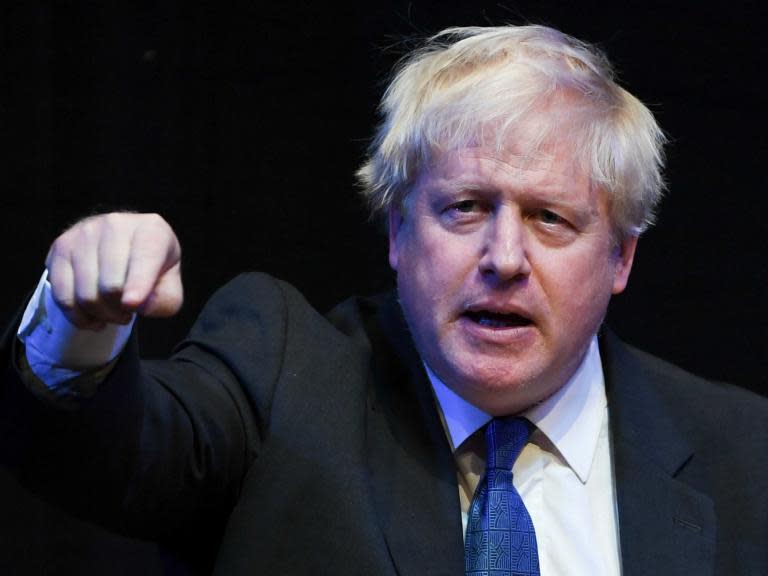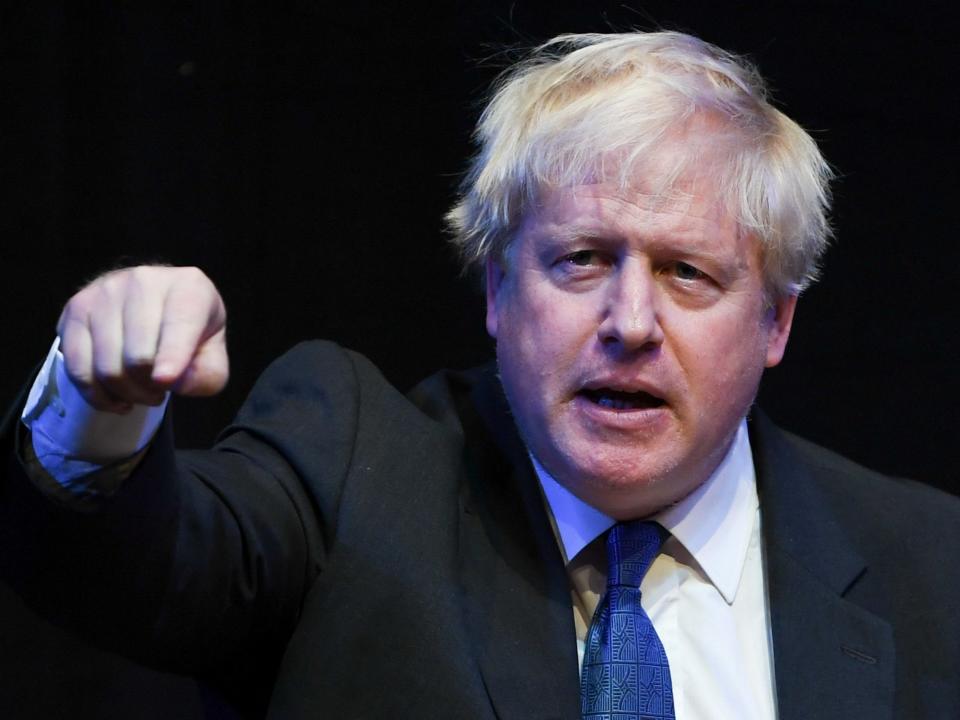Boris Johnson needs to be honest in responding to the backlash against a no-deal Brexit
Within hours of the prime minister announcing her resignation, Boris Johnson both consolidated his position as the frontrunner to succeed her and provoked a backlash against him.
His words in Switzerland yesterday, promising that, if he were prime minister, the UK would leave the EU on 31 October, “deal or no deal”, were met with a sharp reaction from three cabinet ministers today.
Matt Hancock, the health secretary, Amber Rudd, the work and pensions secretary, and Rory Stewart, the international development secretary, all said that leaving without a deal would be damaging for the country.
Mr Hancock, launching his campaign for the leadership, made the additional point that parliament would oppose a no-deal Brexit and try to prevent it. He said Theresa May, the outgoing prime minister, had failed to deliver Brexit because she “didn’t start by levelling with people about the trade-offs” – the clear implication being that Mr Johnson was beginning to make the same mistake.
Ms Rudd, who ruled herself out of the contest – “I don’t think it is my time at the moment” – made the same point in a different way. She said the new prime minister had to be someone “who can command the confidence of the whole House”. She has been rude about Mr Johnson in the past, saying he was “not the man you want driving you home at the end of the evening”.
Today she was asked four times whether she believes he is an honest politician, and said: “I’m not going to malign any of my colleagues.”
Mr Stewart, who had already announced his intention to be a candidate for the leadership, had no such qualms. “I could not serve in a government whose policy was to push this country into a no-deal Brexit,” he said. “I could not serve with Boris Johnson.”
Well, they have all got straight to the point. The pressure for a no-deal Brexit is growing among Conservative Party members – the 120,000 people who will have the final say on who our next prime minister will be. Nigel Farage’s Brexit Party, which exists to promote that single policy, if such it can be called, will no doubt do well when the results of the European Parliament elections are announced tomorrow.
But it is the duty of all responsible leaders to resist the clamour. The Independent believes that the best deal is membership of the EU but, if we are to leave, it must be by agreement with our partners. A no-deal exit would cause significant economic dislocation, not just for the UK but for Ireland and other EU neighbours.
And it would solve nothing about our future relationship with the vast trading bloc on our doorstep. As soon as a no-deal British government wanted to discuss any aspect of trade with the EU, it would ask us to settle our debts, confirm the rights of EU citizens and ask for guarantees of an open border in Ireland.
Mr Hancock, Ms Rudd and Mr Stewart are all asking the right questions. This leadership campaign will be judged by the way in which Mr Johnson and his fellow no-dealers answer them. We fear for the worst, but we hope for a campaign in which those who aspire to lead this country show true leadership and explain to their party and their country what is possible and what is in the national interest.


